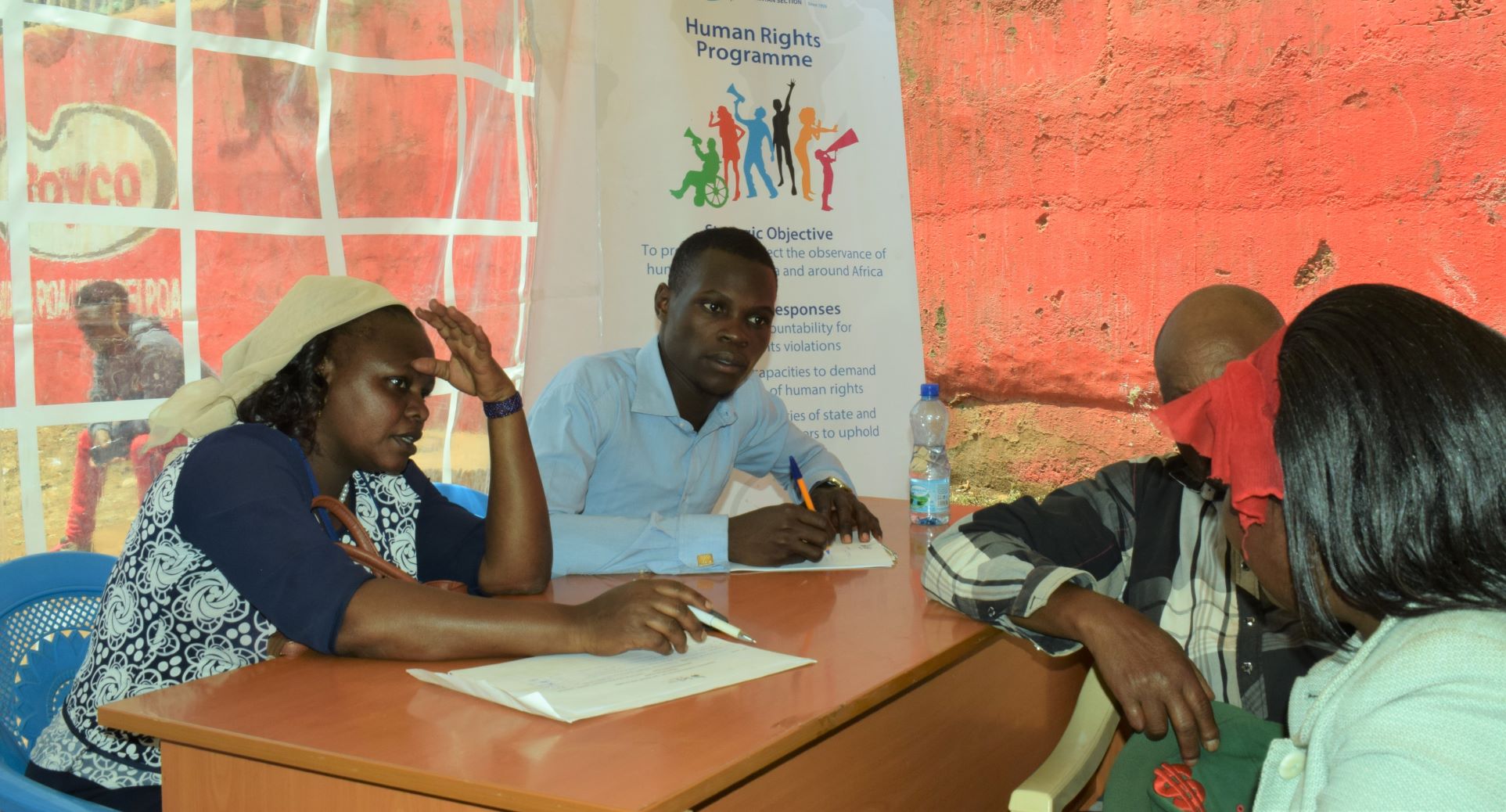NAIROBI, JUNE 18 2020
ICJ Kenya participated at the virtual launch of the report on the state of legal aid in Nairobi on June 18, 2020, organized by the Legal Resources Foundation. The event was held to launch an LRF survey on the Status of Legal Aid in Nairobi County.
ICJ Kenya was represented at the launch by Edigah Kavulavu, Programme Manager, Human Rights and Justice Programme who spoke on behalf of the Executive Director Abdul Noormohamed.
ICJ Kenya also attended the launch as the current Chair of the Paralegal Support Network (PASUNE).
PASUNE is a coalition of civil society organizations undertaking paralegal initiatives as a means of enhancing access to justice.
To ensure smooth running of the network, PASUNE has a steering committee whose role is to provide strategic policy direction and guidance to the network and its members.
The steering committee members comprise of: The Kenyan Section of the International Commission of Jurists (ICJ Kenya); Legal Resources Foundation (LRF); Kituo Cha Sheria; and Ecumenical Centre for Justice and Peace (ECJP).
PASUNE was established in the year 2000 with an objective to standardize the trainings and operations of paralegals and provide support and referral mechanisms for paralegals.
The network recognizes that the promotion of legal aid is essential to the right to access to justice for all, and fundamental to the promotion of rule of law, justice, peace and sustainable development.
Throughout the years, PASUNE has influenced positive policy change, more specifically, the enactment of the Legal Aid Act, 2016. The enactment of the Legal Aid Act marked a significant milestone in the development of the justice system in Kenya.
Prior to the enactment of the Legal Aid Act, legal aid was being offered by both State and non-State actors, with non-State actors as the major provider, operating without any clear legal, institutional and coordination framework. Majority of the non-State legal aid providers have been civil society organizations in partnership with community paralegals.
However, with the enactment of the Legal Aid Act, the Government of Kenya has adopted a collaborative and systemic approach that brings together both State and non-State actors in a coordinated manner in the delivery of legal aid. In addition to this, the Legal Aid Act, 2016 has given formal recognition to the paralegals.
PASUNE has continued to support the National Legal Aid Service in the implementation of the Legal Aid Act, 2016 and other important actors in the criminal justice sector such as the NCAJ criminal justice committee set up by the Hon, Chief Justice of Kenya and headed by the Hon. Lady Justice Grace Ngenye.
PASUNE has also made efforts to draw lessons in a systematic way through sharing and comparison of experiences with paralegal programs in different countries such as Tanzania, Uganda, Somalia and South Sudan through collaboration with the East and Horn of Africa Paralegal Network.
Following the declaration by the World Health Organization of Coronavirus as a pandemic, legal services were not among the essential services, yet there were incidences of increased cases of human rights violations. In this regard, PASUNE has continued to explore innovative strategies to give legal advice and to conduct alternative dispute resolution in order to promote access to justice during this period.
PASUNE will continue to play its role in strengthening the current legal aid frameworks and enhancing the role of paralegals and community legal aid providers in the provision of legal aid in order to promote access to justice in Kenya.
-ENDS-











